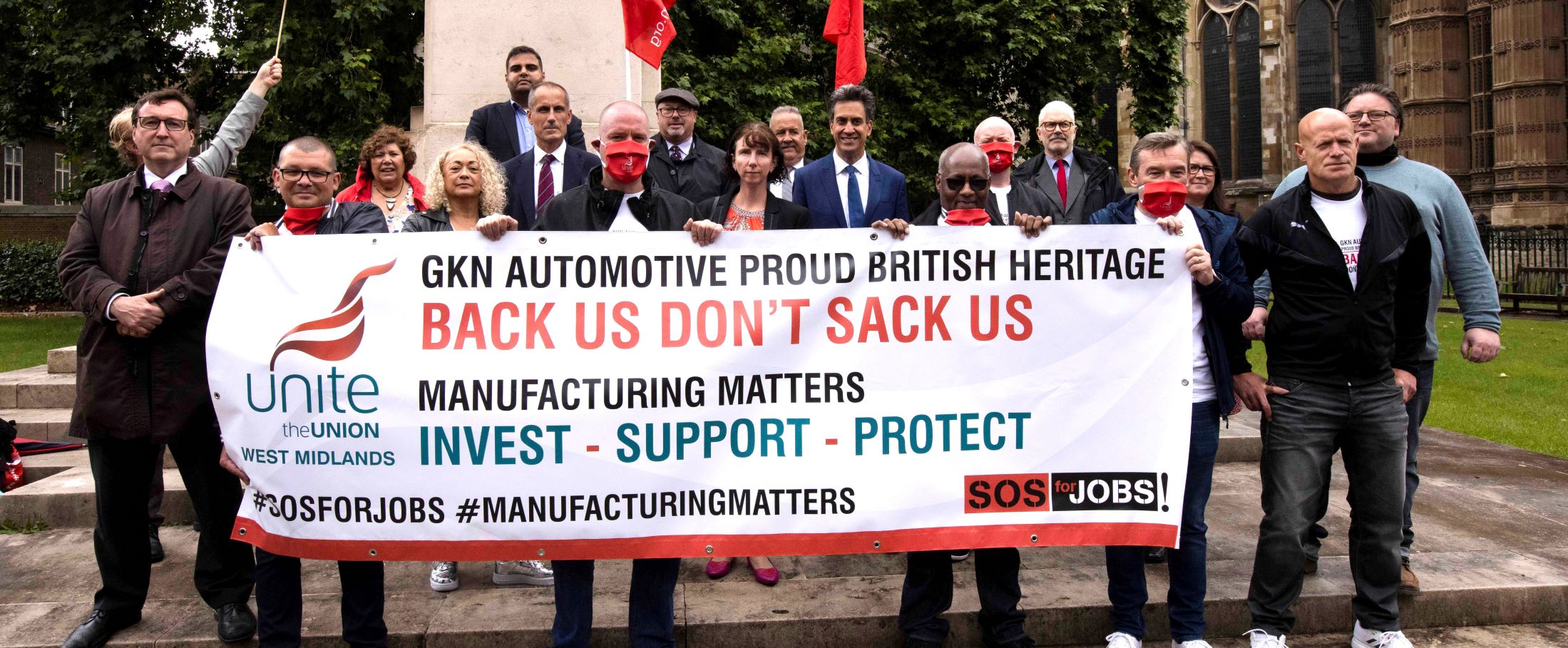Confidence vote for young
Defence firm BAE Systems is now offering a record number of high quality, highly paid apprenticeships and last week committed to offering hundreds more this year.
At the moment, the company is training more than 2,000 young apprentices to be the cutting-edge engineers of the future across the country, amounting to 6 per cent of BAE’s total workforce.
By September 2017, the company will recruit 574 more apprentices, with the biggest recruitment drive occurring at its Barrow-in-Furness site in Cumbria, where nearly 300 trainees will work on new Dreadnought class submarines and the four remaining Astute class submarines.
A record quarter of the new apprentices will be women, and nearly 4 per cent will be from black and Asian ethnic minority (BAEM) backgrounds.
The apprenticeships will last from three to four years. Some apprentices will also be given direct entry into bachelor’s and master’s degree programmes afterwards.
Unite general secretary Len McCluskey hailed the latest news.
“The decision by BAE to train a record number of apprentices is a vote of confidence in our young people and the UK’s aerospace and shipbuilding industries,” he said.
“These are exactly the high quality â€world class’ apprenticeships that Unite has been campaigning for as part of a manufacturing strategy that harnesses the potential of all our young men and women.
Record number of women
“It is good see that in a traditionally male dominated sector over a quarter of BAE’s record number of apprentices are women,” he added. “While there is clearly a way to go, this step in the right direction shows that Unite’s campaigning with employers to encourage more women into science and engineering is having an impact.
“Unite will not let up in our campaigning to encourage more women into manufacturing and get companies to commit to good quality apprenticeships,” McCluskey noted. “We urge ministers to do more and put decent apprenticeships at the heart of an industrial strategy which re-balances the economy and provides decent employment for young people.”
Unite assistant general secretary Tony Burke highlighted the vital role Unite played in securing the new BAE apprenticeships.
“Unite reps in BAE systems across the board – both in shipbuilding and aerospace – have been pushing for these sorts of high quality apprenticeships for some time,” he said. “Without the support of Unite reps these apprenticeships would not have been a reality.”
“That BAE will be recruiting hundreds at Barrow-in- Furness is really great news because these apprenticeships are very high quality – they’re not cheap and cheerful.
The type of apprenticeships BAE Systems will offer are needed now more than ever across the science, manufacturing and engineering sectors, Burke noted.
That’s because a massive skills shortage has been created by some companies which, under uncertain economic times, halted recruiting new apprentices over the last several years.
“Another issue is age profile,” Burke explained. “If you look at the average age profile of some companies in some industries such as manufacturing – it’s quite high.
“You get to the stage where it gets really worrying because there’s no succession planning. If you’ve got lots of highly skilled people retiring all at the same time, this will create another black hole in skills.”
More worrying still is what the future holds for UK manufacturing and engineering post-Brexit. In aerospace, for example, the sector is reliant on skilled workers from both the UK and the EU.
Aerospace, Defence and Security Group chief executive Paul Everitt explained that for aerospace “from an operational perspective, problems are often solved by mobile teams operating at sites across Europe including the UK.”
If UK industries such as aerospace are to remain competitive under a post-Brexit landscape where freedom of movement may be limited, more high quality apprenticeships of BAE Systems’ calibre will be of absolutely vital importance.
This, Burke emphasises, is where the government must step in.
The apprenticeship levy was first announced in the government’s 2015 summer budget and aims to help fund 3m apprenticeships by 2020. The 0.5 per cent levy is set to go into effect in April this year and will be imposed on all companies with a wage bill of more than £3m per annum.
Unite concern
Unite has previously expressed concern that the government has not given employers enough clarity over the new levy – detailed guidance is desperately needed so that businesses can start planning for new apprenticeships now.
“The government should use the apprenticeship levy to invest in quality apprenticeships,” Burke argued.
“The worry is that the government will go for low-quality, low-pay apprenticeships and say that they delivered on their promises of 3m apprenticeships by 2020,” he added.
The previous Tory-led government had a dismal record in creating high-quality apprenticeships – the IPPR think tank found that only a third of apprenticeships created between 2010 and 2015 were at the advanced or higher skills level. More than 40 per cent of all new apprenticeships went to those over 25, and the vast majority of these went to employees already working for the company offering them.
“If we’re going to be successful as a nation, we’ve got to be a highly skilled nation,” Burke noted. “And if we’re going to do that, then we have to invest in skills. You can’t do that on a short-term basis – you have to have a long-term plan for skills.
Photo of models
 Like
Like Follow
Follow

